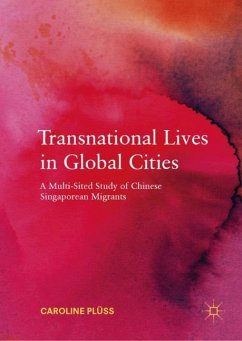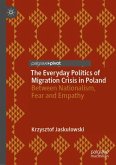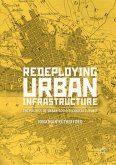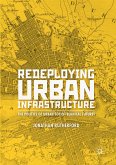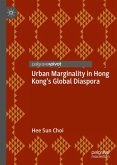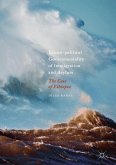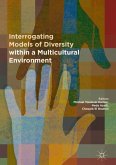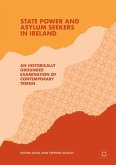This book investigates the transnational experiences of Chinese Singaporeans who lived in one of four global cities: Hong Kong, London, New York, or Singapore. Plüss argues that these middle-class, well-educated, and often highly skilled migrants mostly experienced a sense of dis-embeddedness, and not cosmopolitanism, or hybridity, in their transnational lives. The author's multi-sited study intersects the Chinese Singaporeans' highly varied perceptions of these global cities and their biographies to show that these migrants-who often were repeat migrants-foremost experienced ruptures and disjuncture in their education, work, family, and/or friendships/lifestyle contexts. Transnational (dis)embeddedness is explained in terms of the Chinese Singaporeans' access to resources and their views of self, others, places, and societies. Plüss recommends that research on these migrants should more fully account for the complexities of transnational processes, and contributes with such a knowledge to the scholarship on transnationalism, migration, race and ethnicity, and migrant non-integration.
"Transnational Lives in Global Cities offers a timely and much-needed multi-sited analysis of the lived experience of transnational migrants in global cities. ... With transnational migrants disproportionately moving to global cities and contributing to these cities' globality, the knowledge produced in this book will undoubtedly be relevant for scholars within, and well beyond, migration, transnationalism, and urban studies." (Yeo Si Jie Ivin, International Migration Review, April 8, 2020)

